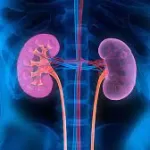University of California San Diego Researchers Develop Innovative Method to Assess Newborns’ Nursing Mechanics
In a groundbreaking study published in the online edition of the IEEE Journal of Translational Engineering in Health and Medicine, researchers from the University of California San Diego have unveiled a pioneering approach to assess newborns’ breastfeeding mechanics. By employing a modified pacifier coupled with advanced AI algorithms, the study aims to provide objective data on infants’ suckling patterns, potentially revolutionizing the way clinicians evaluate breastfeeding proficiency.
The study, led by Professor James Friend from the Department of Mechanical and Aerospace Engineering and the Department of Surgery at UC San Diego, focused on measuring infants’ suckling strength and patterns using a novel device and sophisticated data analysis techniques. The device, comprised of a simple pacifier connected to a vacuum sensor and data collection chip, along with accompanying software utilizing machine learning algorithms, records and analyzes suckling data based on eight independent parameters.
“Our method replaces subjective assessments with objective data, offering clinicians a more accurate and reliable tool to evaluate newborns’ breastfeeding capabilities,” stated Professor Friend, emphasizing the importance of leveraging technology to enhance clinical practices.
The research team, in collaboration with speech-language pathologist Erin Walsh, observed promising results validating the efficacy of the new assessment method. Notably, the study highlighted the potential of the device to detect abnormalities in infants’ suckling behavior, providing crucial insights for early intervention and support for breastfeeding parents.
Erin Walsh expressed confidence in the study’s findings, emphasizing the significance of leveraging scientific data to improve clinical assessments and support parents in their breastfeeding journey. “Our findings aim to empower clinicians and parents alike, offering rapid and precise insights into infants’ suckling ability,” Walsh remarked.
One notable finding of the study pertains to the diagnosis and treatment of tongue-tie, a condition affecting approximately 7% of newborns and often requiring surgical intervention. By analyzing data from the device, researchers identified cases where frenotomy, the surgical procedure to address tongue-tie, significantly improved suckling behavior post-surgery. This discovery suggests that surgical interventions could potentially be prevented in certain cases, highlighting the importance of accurate assessment tools in clinical practice.
However, the study also revealed limitations in the current approach to frenotomy, with data indicating that not all cases of breastfeeding difficulties necessitate surgical intervention. “Our data challenge the notion of frenotomy as a universal solution for breastfeeding issues, underscoring the need for more nuanced and personalized approaches,” Walsh added.
The proof of concept study, involving 91 healthy full-term infants, received approval from UC San Diego’s Internal Review Board and demonstrated promising results in a clinical setting. Moving forward, researchers plan to conduct further trials to validate the device’s effectiveness in diverse pediatric practices, with the ultimate goal of making it widely available for early breastfeeding assessments.
The study was funded by various sources, including the Galvanizing Engineering in Medicine initiative at UC San Diego, the National Institutes of Health, and the Willia H. and Mattie Wattis Harris Foundation, underscoring the significance of interdisciplinary collaboration in advancing healthcare innovation.
As Professor Friend and Erin Walsh embark on establishing a company to commercialize the technology, the study paves the way for a transformative approach to infant feeding assessment, promising improved outcomes for newborns and their families.












